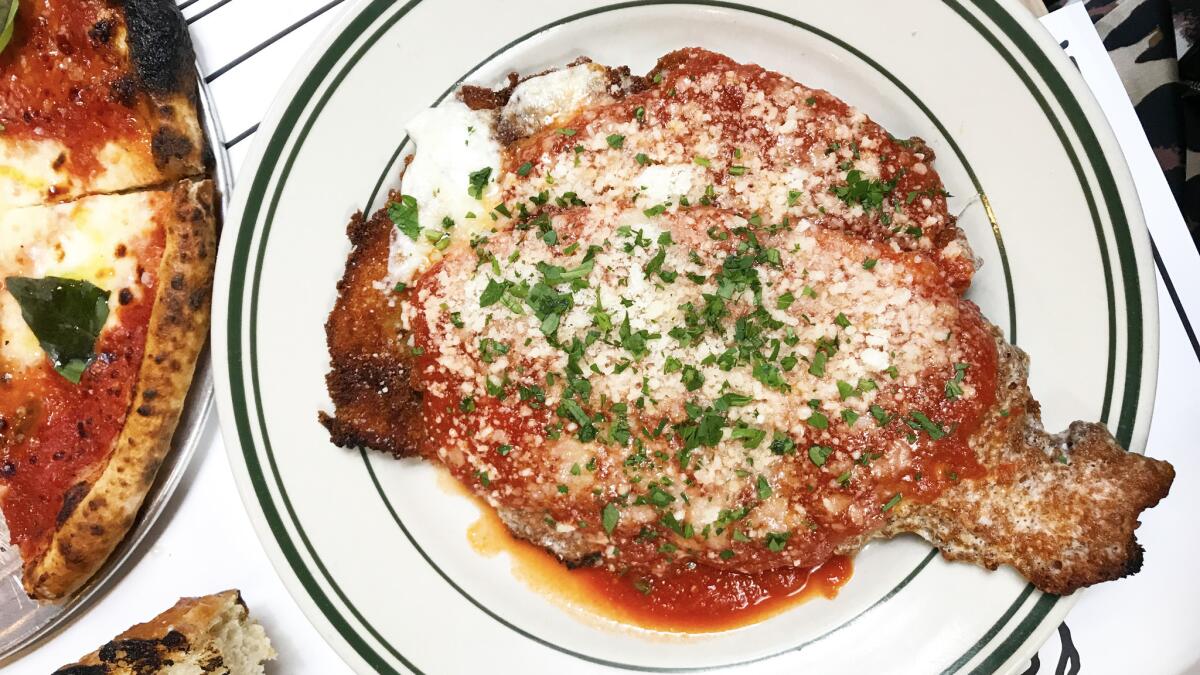Chicken Parm and spaghetti and meatballs are not real Italian food

Whatâs the orange chicken of Italian food?
I asked cookbook author Katie Parla this question over lunch recently in Los Angeles. Her response: Chicken Parm.
Parla was in town to promote her new cookbook, âFood of the Italian South,â which focuses on the regional cuisines of Southern Italy. Itâs safe to say that whatâs in this book â pan-fried anchovies with smashed garlic; bread dumplings with potato and tomato broth; carrati pasta with mutton ragu â is âauthentic.â Itâs stuff you wouldnât find served on top of red-and-white gingham tablecloths in Italian American red sauce joints decorated with fiaschi of Chianti.
According to Parla, chicken Parmesan â the beloved breaded and fried chicken cutlet smothered in tomato sauce and a blanket of melted cheese â is not a dish you will find in Italy.
âPeople have perfect ideas about what Italian food is ... like chicken Parm, which doesnât exist in Italy but is completely married to a concept of Italian cooking here,â Parla said.
Chicken Parmesan may have evolved from eggplant Parmesan (parmigiana di melanzane), suggested Parla, which is a Southern Italian dish of fried eggplant with tomato sauce and cheese. As immigrants from Sicily settled in the U.S., people started to make a variation with chicken â a variation that now towers as a classic of Italian cooking in the American mind, even if you canât order it on a traditional menu in Italy.
And if âLady and the Trampâ had been set in Italy instead of the U.S.? There would have been no meatballs on that pile of spaghetti.
âThereâs Italian spaghetti with little baby meatballs that form in the sauce, but spaghetti and gigantic meatballs are not actually Italian,â Parla said. âThereâs a specific order. You get your spaghetti and then when the spaghetti is gone, you get a meatball or two or three depending on the meatball size. It arrives unadorned, no garnish on the plate and thatâs it. Itâs your main dish.â
So, there is spaghetti then meatballs.
She suggests traveling to Southern Italy to try the real stuff like foraged greens and polenta; and orecchiette with burrata, tomatoes and almond pesto. The importance of seeking out and preserving these dishes is the crux of her book.
Parla shared a recipe for her frittata with flowers, so you can experience a little of the Italian South at home, too.
More to Read
Eat your way across L.A.
Get our weekly Tasting Notes newsletter for reviews, news and more.
You may occasionally receive promotional content from the Los Angeles Times.











